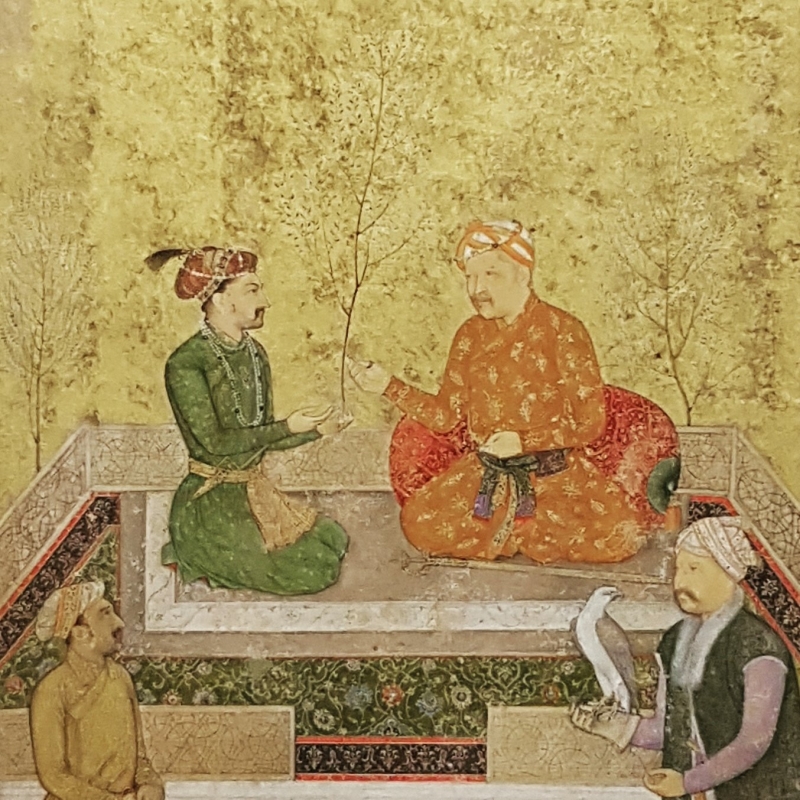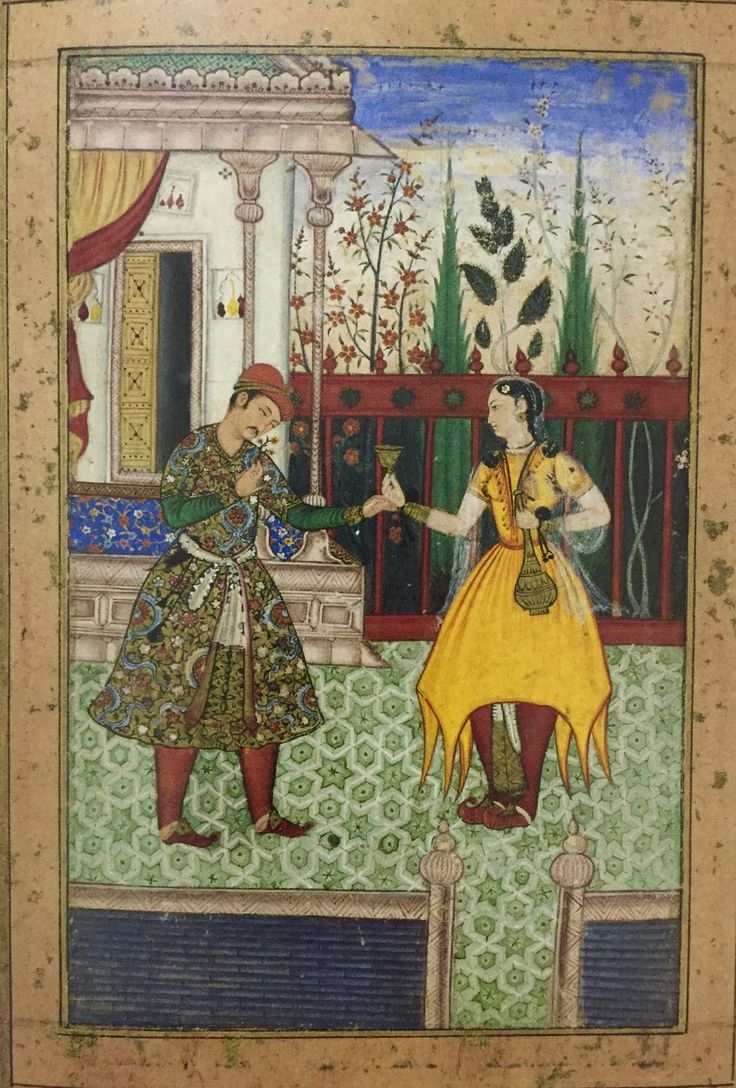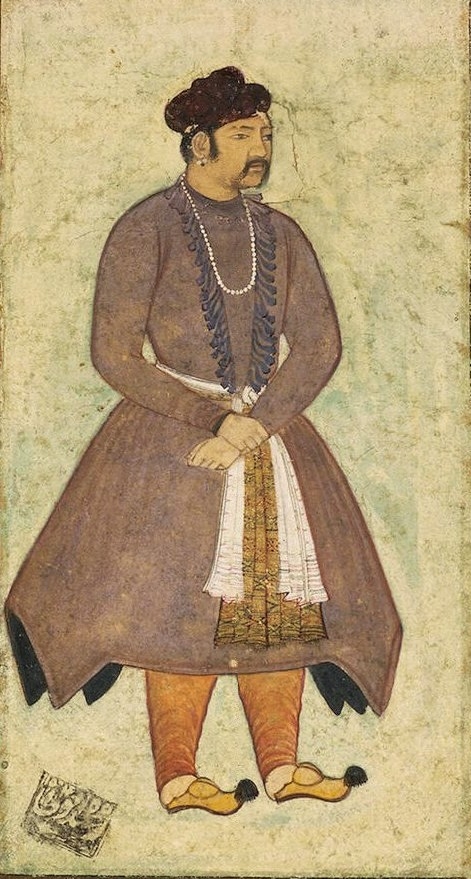And you said that removing the real name of MUZ from history was not an act of religious bigotry...if not then what was it? And who did it? Was it Aurangzeb or some random Mughal?
Or was it some Hindu scribe unwilling to ever show the world that a Hindu Princess could ever become what MUZ became?
Who else holds a vested interest in removing the name of a mere woman? Again, a genuine question-- I know my tone can often be confront-tary but trust me, I am just as shocked about all this as the day I read it and my passion is still strong hence I might be coming a bit strong. Pardon me if any of my words are hurtful or offensive.
Hey, no, not at all! Please don't embarrass me by apologizing - I'll say it again, I adore your politeness and you're being as respectful as is humanly possible, really!  I understand any anger that you have, esp for MUZ, because I share it with you! She's my favorite historical personality and the injustice meted out to her boils my blood as it does yours.
I understand any anger that you have, esp for MUZ, because I share it with you! She's my favorite historical personality and the injustice meted out to her boils my blood as it does yours.
I'm saying MUZ's name not being there in Akbarnama is not an act of religious bigotry, because it was done to the Muslim royal females as well. Her erasure from history entirely, esp after Akbar, is VERY MUCH an act of religious bigotry. It could be Aurangzeb, or it could be the orthodox chroniclers, the ulema, anyone at all - there's no dearth of bigots anywhere. It wasn't Akbar, is my point.
"Or was it some Hindu scribe unwilling to ever show the world that a Hindu Princess could ever become what MUZ became?" - Do you mean a Muslim scribe here? Because in my opinion, a Muslim would be more averse to the view that a non-Muslim could've had such influence over the Empire... isn't it?
Who else holds a vested interest in removing the name of a mere woman? - Yep, the fact itself shows she wasn't a 'mere woman'. The other 'mere' Hindu women, like Man Bai, Jagat Gosain etc, have all had their names written down. But MUZ was a force to reckon with, in her time and even later through her legacy. Lots of people would not want the world to know that the Mighty Mughal Empire once bowed to a Hindu Queen, a practicing idolater at that! My guess is, it was later Islamic scholars who compiled Mughal History who did so - as also mentioned by Professor Ellison Banks in her research paper on MUZ.
No, I don't think I can call it misogyny because MUZ's achievements have not been hidden, had it been misogyny then MUZ would have been shown like any other silent broodmare, thankfully that is not the case but...
Her name has been hidden. Her identity has also and her religion was a big part of her identity. Stating that Fatehpur Sikri has Hindu Gods etched onto its minarets is one point but completely obfuscating this particular woman's history is another.
Yup, it has been hidden, just not by Akbar, was my point. Akbarnama clearly states her Hindu background and connection. Only the name is not mentioned in it, which is the case with all royal females. Systematic erasure of identity etc happen later on. Come to think of it, why would Akbar even want to hide her identity? It would only add to his good image if everyone knew how much power Hindus had in his Court.
And no, not just minarets. All of Harka Bai's palaces - Fatehpur Sikri, Mandu, Allahabad - have proper temples for her to use. They're testaments to Akbar's regard for her, and they are declarations of her identity that cannot be erased by the ravages of time itself. In a way, by building these, Akbar himself made sure her identity wouldn't ever be erased. Did you know that Fatehpur Sikri is called "a moment frozen in history", because it depicts in stone an entire era of syncretism, a monument that stands as testimony of better times, a testimony that couldn't be erased by either time or bigotry? Also called "romance in stone"!








 )
) Anyways, glad to see you trying to look for varied opinions instead of blindly believing any one that suits you. A word of caution is to try and verify everything you read online, esp those making tall claims - in the current political scene, almost everything you find easily on the internet will portray Akbar negatively only. Remember, he's neither a saint nor a demon - be vary of any article that tries to portray him as either.
Anyways, glad to see you trying to look for varied opinions instead of blindly believing any one that suits you. A word of caution is to try and verify everything you read online, esp those making tall claims - in the current political scene, almost everything you find easily on the internet will portray Akbar negatively only. Remember, he's neither a saint nor a demon - be vary of any article that tries to portray him as either.
 But he's too 21st century for literally any man from the 16th century to match! :(
But he's too 21st century for literally any man from the 16th century to match! :( 










comment:
p_commentcount